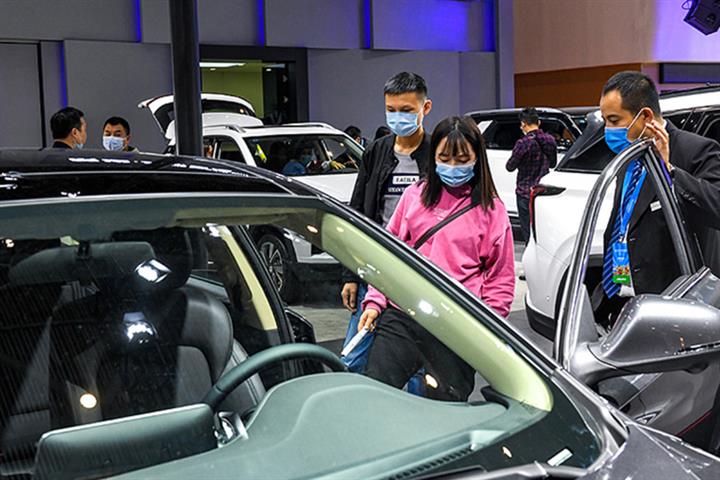 Chinese Carmakers’ Shares Climb Amid Calls for Extension to Purchase Tax Cut Policy
Chinese Carmakers’ Shares Climb Amid Calls for Extension to Purchase Tax Cut Policy(Yicai Global) Nov. 30 -- Speculation that China’s fuel vehicle purchase tax reduction policy may be extended caused the shares of several automakers, including FAW Jiefang Automotive, Ankai Automobile, and Chang’an Automobile, to surge by their upper trading limit today.
FAW Jiefang Automotive [SHE: 000800] closed up 10 percent at CNY8.09 (USD1.13), while Ankai Automobile [SHE: 000868] gained by the same to finish at CNY6.66. Chang’an Automobile [SHE: 000625], meanwhile, ended at CNY13.45.
In response to the speculation, Cui Dongshu, secretary general of the China Passenger Car Association, told Yicai Global that the industry has put forward such a suggestion, but the policy is unlikely to be introduced so early.
At the end of May, the Ministry of Finance and the State Administration of Taxation issued a document saying that to boost car purchases and support the auto industry’s development, purchase tax would be halved for passenger cars of 2 liters or less and bought in the second half of 2022, unless the price (excluding value-added tax) was more than CNY300,000 (USD41,970).
The policy has worked well in boosting the car market. From June to October, about 6.52 million passenger cars of no more than 2 liters were sold, an increase of 20.6 percent on the first five months before the policy was implemented.
With the policy due to end, the industry’s call for an extension is growing louder. Recently, the Ministry of Industry and Information Technology and two other departments jointly issued a notice proposing that to boost auto sales, the phased halving of the purchase tax on passenger cars of 2 liters and below and the continuation of the preferential policy on exemption from the tax for new energy vehicles would be implemented.
The tax cut policy has already been extended more than once. In response to the global financial crisis in 2008, China proposed purchase tax cuts for the first time.
In 2009, the tax was halved to 5 percent, and in 2010, the policy was extended, but the margin of preference was narrowed, with the purchase tax rising to 7.5 percent. In 2015, the policy of halving the tax for small-displacement cars was relaunched. In 2017, the purchase tax was raised from 5 percent to 7.5 percent.
Though the industry recommends that the purchase tax reduction policy for fuel vehicles be postponed, some analysts believe that the margin may be narrowed next year, and the tax may rise from the current 5 percent to 7.5 percent.
Editor: Peter Thomas